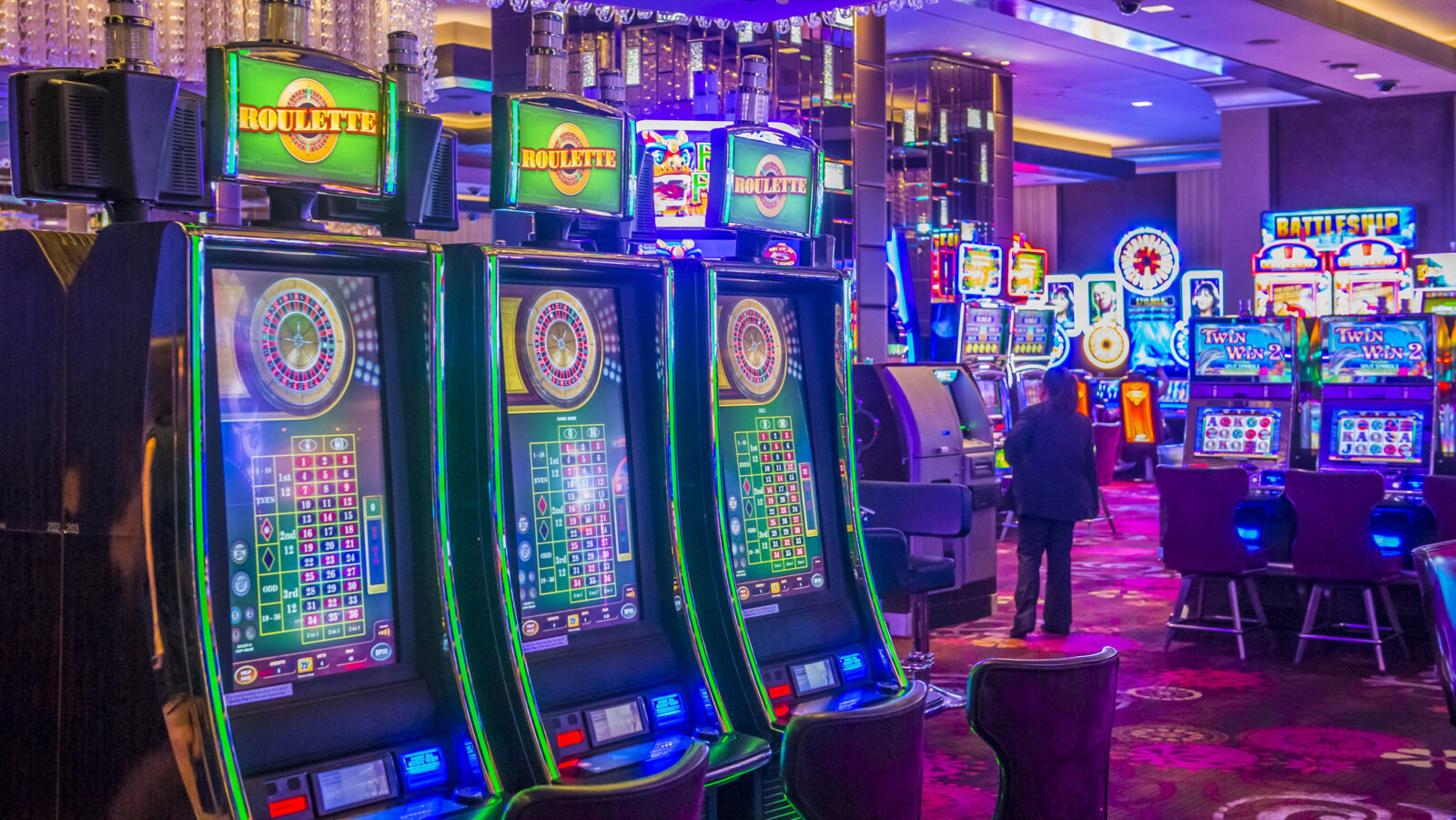Retail Casinos Still Generate More Revenue Than Online Casinos
It only took a few states to show how much more revenue potential online casinos offered than online sportsbooks. In every iGaming state, casinos generate several times more revenue than sports betting.
3 min

On the heels of lots of recent talk about online casinos and the specter of cannibalization of gambling activity at brick-and-mortar casinos, we wondered what percentage of overall revenue flows from online gambling versus in-person play.
In the six iGaming states before Rhode Island launched online in March, physical casinos have continued to generate more revenue than online gambling. In four of these states, retail casinos comprise 60-70% of the net revenue collected by retail and online casinos. For the six states with a full year of gambling revenue data, retail casino net revenue outpaces online casino net revenue.
The proportion is depicted in the chart below:
Michigan and Delaware are the two outliers, but each has a caveat. The Michigan Gaming Control Board publishes Detroit’s commercial casino figures but not tribal revenues. Based on American Gaming Association figures from previous years, Michigan casino revenue is probably much closer to 60% retail net revenue.
Delaware’s figures are complete, but they are about to change. It relaunched iGaming with a new provider, Rush Street Interactive, this year. Delaware iGaming revenue rose from $1.1 million in December 2023 to over $3.4 million in January 2024. After 12 months at $3.4 million, online casino net revenue would represent 44% of annual casino net revenue.
Retail and online casinos are the most profitable gambling verticals for states. That has important implications for the sports betting states, most of which haven’t legalized online casino gambling.
Sports betting popular, online casinos profitable
Almost 40 states offer sports betting, but only seven offer legal online casinos at present. It only took a few states to show how much more revenue potential online casinos offered than online sportsbooks. In every iGaming state, iCasinos generate several times more revenue than sports betting:
Within sports betting, over 90% of revenue comes via online sportsbooks. Online sports betting in Michigan generated $224 million in revenue in 2023. Retail sports betting generated almost $14 million in revenue.
In Pennsylvania, the 2023 split was $643 million from online sportsbooks and $44 million from brick-and-mortar sportsbooks.
Convenience, accessibility, and innovation drive sports betting revenue, making online sports betting much more profitable than retail sports betting.
Casinos are a little different. Brick-and-mortar casinos are supported by bars, restaurants, and entertainment. These supplemental offerings can lengthen stays and encourage additional gambling.
Online casinos have ease and convenience going for them. It’s easier to bet a lot of money at a time and pull a digital lever. Add in the generally static and higher profit margins in iGaming versus the volatility and seasonality of sports betting, and it’s just more profitable than sports betting.
With such high revenue potential and popularity, it’s a wonder that fewer states have legalized online casinos. Yet online casino legislation has faced steeper battles uphill in many statehouses while sports betting ascended more easily.
Online casinos stigmatized in way sportsbooks aren’t
Sports betting can engage sports fans in an area that fans already care about. Online casinos aren’t tied to any other activity besides the thrill of risk.
That changes the political calculus for legislators deciding what kinds of gambling expansion policies to support. Bettors will clamor for sportsbook access to go with Sunday Night Football, especially as surrounding states legalize it. They’re not pushing for online casinos in the same numbers.
Online casinos are also subject to increased skepticism from lawmakers and lobbyists who oppose gambling expansion. Stuart Banner’s book Speculation found that 19th century critics of gambling claimed that it led to “idleness and financial ruin, and often to madness and even suicide.” Gambling has a long history of surrounding suspicion.
Partnerships with leagues, athletes, and celebrities help sportsbooks overcome that stigma. Online casinos don’t have anything to link them to the outside world besides the thrill of risk and the hope of wealth.
Rhode Island, Maryland iCasinos could be profitable
Rhode Island online casinos launched on March 5. It’s a small market, but based on the other six iGaming states, online casinos should increase gambling revenue overall. Part of that aforementioned cannibalization debate: a recent study by Eilers & Krejcik found determined that online casinos don’t cannibalize retail casino revenue. Those researchers found that retail casino revenue increased by an average of 1.7% after iGaming’s introduction.
That’s not only good news for Rhode Island, but also for Maryland. One of the common objections to online casino legalization is cannibalization. Cannibalization is when one product line reduces the revenue of another. Fears that brick-and-mortar casinos could take a hit from competing online casinos has been one of many concerns aired by gambling expansion opponents.
Time is short in Maryland’s legislative session, but there is still hope for proponents that the legislation could advance through the Senate after passing through the House on March 16.




